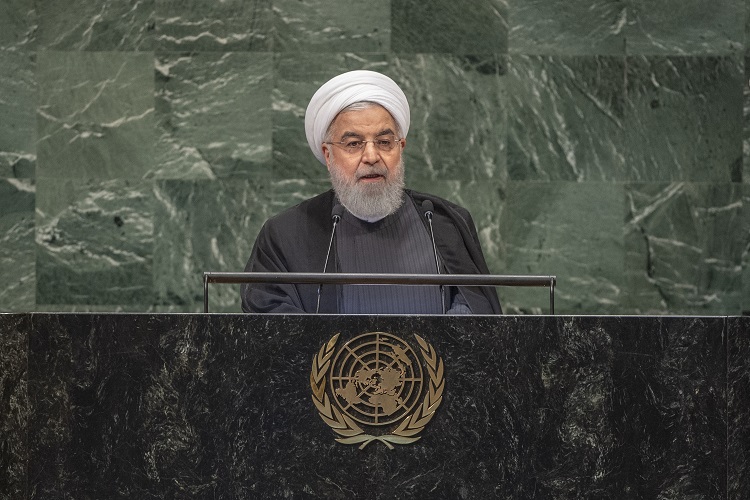There’s no doubt US President Donald Trump’s renewed sanctions will hurt Iran, but it is not a given that they will halt its nuclear and missile programs, or its other activities in the region. The challenges the president faces, from the Europeans especially, will test the effectiveness of US leadership on the issue.
Major players in the Iran nuclear deal (the Joint Comprehensive Plan of Action, or JCPOA) have used the latest UN General Assembly meeting, or acted simultaneously with it, to strengthen their positions for and against the agreement.
Supporting the deal were a joint ministerial statement on 24 September from the JCPOA participants (Britain, France, Germany, Russia, China, Iran and the EU) and an address from Iranian President Hassan Rouhani to the UN on 25 September.
Trump attacked the JCPOA in his UN address, also on 25 September, and in his opening remarks on 26 September as Security Council chair. The release of two US State Department documents, the Annual country reports on terrorism 2017 and Outlaw regime: a chronicle of Iran’s destructive activities, was timed to provide more detailed support for Trump’s claims of Iranian ‘malign activities’, regionally and globally.
Israeli Prime Minister Benjamin Netanyahu complemented Trump with his own address to the UN on 27 September.
Predictably, the joint statement strongly reasserted participants’ commitment to the JCPOA, and to the EU’s ‘blocking statute’, updated on 7 August, that legally protects all EU businesses that defy Trump’s reimposed sanctions and continue to trade with Iran. Also announced was the creation of a ‘special purpose vehicle’ to provide businesses in the EU and elsewhere with ‘secure payment channels’ that would bypass US financial systems. However, the statement noted that operational aspects of the vehicle were yet to be finalised.
In a clear challenge to Trump’s actions to severely restrict international trade with Iran, the joint statement referred to the importance of ‘normalising trade and economic relations’ and securing ‘the continuation of Iran’s oil and gas condensate, petroleum products and petrochemicals’. It also emphasised that these objectives were consistent with UN Security Council resolution 2231, which endorsed the JCPOA in January 2016.
Read the article by Ian Dudgeon, presidential associate of the Australian Institute of International Affairs on The Strategist.

